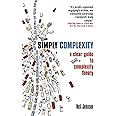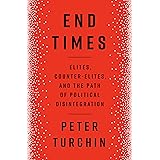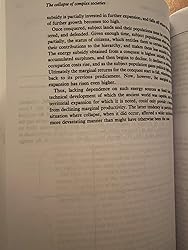
Enjoy fast, free delivery, exclusive deals, and award-winning movies & TV shows with Prime
Try Prime
and start saving today with fast, free delivery
Amazon Prime includes:
Fast, FREE Delivery is available to Prime members. To join, select "Try Amazon Prime and start saving today with Fast, FREE Delivery" below the Add to Cart button.
Amazon Prime members enjoy:- Cardmembers earn 5% Back at Amazon.com with a Prime Credit Card.
- Unlimited Free Two-Day Delivery
- Streaming of thousands of movies and TV shows with limited ads on Prime Video.
- A Kindle book to borrow for free each month - with no due dates
- Listen to over 2 million songs and hundreds of playlists
- Unlimited photo storage with anywhere access
Important: Your credit card will NOT be charged when you start your free trial or if you cancel during the trial period. If you're happy with Amazon Prime, do nothing. At the end of the free trial, your membership will automatically upgrade to a monthly membership.
Buy new:
-19% $48.51$48.51
Ships from: Amazon.com Sold by: Amazon.com
Save with Used - Very Good
$43.71$43.71
Ships from: Amazon Sold by: Opti Sales

Download the free Kindle app and start reading Kindle books instantly on your smartphone, tablet, or computer - no Kindle device required.
Read instantly on your browser with Kindle for Web.
Using your mobile phone camera - scan the code below and download the Kindle app.

OK
 Audible sample Sample
Audible sample Sample 


The Collapse of Complex Societies (New Studies in Archaeology) Reprint Edition
Purchase options and add-ons
- ISBN-10052138673X
- ISBN-13978-0521386739
- EditionReprint
- PublisherCambridge University Press
- Publication dateMarch 30, 1990
- LanguageEnglish
- Dimensions6.69 x 0.6 x 9.61 inches
- Print length264 pages
Frequently bought together

Similar items that may ship from close to you
Editorial Reviews
Review
"Tainter's is an attractive and compelling thesis of a genre which is nearly extinct among domestic historians." History Today
"This is a lucid and stimulating book. Tainter does provide a framework for organizing and evaluating the evidence of collapse. One of the strengths of his framework is the broadness of its terms of reference. Tainter's model accommodates all levels of complexity and all kinds of evidence, from fiscal policy to the acquisition of raw materials. It deserves to be widely read." Antiquity
"Tainter has provided copious grist for the intellectual mill in this remarkable piece of scholarship. The breadth of its coverage is given order by a model that qualifies, I believe, as one of the covering laws archaeologists have sought. In addition, Old World and New World scholars alike can profit from a reading of this book." P. Nick Kardulias, American Journal of Archaeology
"The Collapse of Complex Societies contains much useful historical and archeological information on empires that have abruptly disappeared." James B. Rule, Suny, Stony Brook, in Population and Environment
"The book is thought-provoking, engaging, and often witty, and well illustrates the relevancy of classical antiquity to contemporary concerns." Classical World
Book Description
Product details
- Publisher : Cambridge University Press; Reprint edition (March 30, 1990)
- Language : English
- Paperback : 264 pages
- ISBN-10 : 052138673X
- ISBN-13 : 978-0521386739
- Item Weight : 1.18 pounds
- Dimensions : 6.69 x 0.6 x 9.61 inches
- Best Sellers Rank: #154,309 in Books (See Top 100 in Books)
- #21 in Ancient History (Books)
- #173 in Archaeology (Books)
- #3,126 in Unknown
- Customer Reviews:
About the author

Discover more of the author’s books, see similar authors, read author blogs and more
Customer reviews
Customer Reviews, including Product Star Ratings help customers to learn more about the product and decide whether it is the right product for them.
To calculate the overall star rating and percentage breakdown by star, we don’t use a simple average. Instead, our system considers things like how recent a review is and if the reviewer bought the item on Amazon. It also analyzed reviews to verify trustworthiness.
Learn more how customers reviews work on AmazonReviews with images
-
Top reviews
Top reviews from the United States
There was a problem filtering reviews right now. Please try again later.
Joseph Tainter, though, is no hysteric. He's a buttoned-down scholar without any apparent pre-conceived agenda and certainly no intent to sensationalize. He's actually a little boring, and casual readers expecting lurid thrills from this book are likely to put it down after the first few pages. Like other students of history over the years, he seems haunted by the fact that so many of the world's once-vibrant civilizations have vanished for no obvious reason. The tasks he's taken on to himself here are to (a) catalogue the major lost civilizations (b)summarize known facts surrounding their rise and fall (c) distill the academic literature regarding the causes of societal collapse down to a handful common theories, and (d) establish the framework for his own general theory. Since it's obvious from the start of the book that he's ultimately looking forward into dynamics that might one day lead to the demise of our own world, this book really grabs your attention once you begin to suspect he may know what he's talking about.
Tainter starts with a brief survey of eighteen vanished civilizations around the world which provide the substance for his study. His professional discipline is archeology, and several of his societies are ones, like the Minoans and the Chacoans, about which archeology tells us everything we know, since they left no written records. For others, like the ancient Romans and China's Western Chou Empire, he intrudes onto historians' turf because the written record provides a key part of the story. In fact, his most comprehensive and interesting discussion is of the Romans. I got the impression that he may have developed his animating insights for this book through his study of Rome, since he manner in which he imposes them on the sketchier cases sounds a bit vague to me in places.
Tainter is obviously not the first researcher to become fascinated by societal collapse. The phenomenon has spawned a whole genre of literature and a host of causal theories. He summarizes them all for us and groups them into eleven broad categories, including resource depletion, natural catastrophe, invasion, social dysfunction, random concatenation of events, and so forth. He points out that none of these are mutually exclusive and that all have something to offer. In the end, however, he pronounces the existing literature inadequate to the task of explaining how and why thriving civilizations eventually disappear. Hence the motivation for his study.
He does point to economic theories, one of the eleven groups, as the one probably richest in explanatory possibilities. And with that observation he lays the groundwork for his own theory, which is based in economics but is capable of subsuming elements associated with the other frameworks. In getting to his subject, Tainter generally avoids the term 'civilization'. He prefers instead the more precise phrase 'complex society', by which he means a social system entailing elaborate division of labor and supporting management hierarchies, government and a robust military. He refers to resources devoted to these functions as the society's "investment in complexity". He then explains the "rise" of a society as the period during which investment in complexity is growing and people are enjoying returns on it in the form of growing wealth, culture and security. Or at least enough people are enjoying these things that social and political stability prevail. Golden ages then can be seen as sweet spots in history during which the benefits from complexity are growing and incentivising more investment in it, triggering virtuous circles. However, such a dynamic is inherently self-limiting and eventually self-destructive.
Two phrases which Tainter borrows from economics are "marginal cost" and "marginal return". Eventually, the marginal returns from investment in complexity - meaning the returns currently available - inevitably level off and then decline, while the marginal costs stay the same or even increase. The only way central authorities can so on supporting such costs is through taxation or currency debasement, unsustainable measures in a system where benefits are perceived as declining. A system so weakened becomes vulnerable to popular revolt or invasion, or lacks the will and resources to overcome other disasters. Tainter describes, for example, how the "barbarians" who eventually overran the Roman Empire were in many cases welcomed and even assisted by the Empire's population, who increasingly saw themselves as benefitting little from Rome's "complexity", even as Rome's tax collectors became more predatory than ever.
Like the good scholar he is, Tainter is cautious in his approach to his subject and modest in the claims he makes for his conclusions. His theory is rather fatalistic and seems to regard a society's collapse as pre-determined by its rise. He is an unusually good writer and casts his points generally in short, declarative sentences that are easy to follow. His ideas, however, are not so simple, and require careful study to absorb fully. The book is short - only 216 pages - but it took me a long time to finish. I found it well worth the effort, and recommend it to others interested in this subject matter.
Also according to his thesis, states that are embedded in a cluster of "peer polities" (as we find in the current globalized national environment) "cannot collapse" (at least not in the same way as Rome or the Mayans), but just continue to spend their way to oblivion, with government elites and bureaucracies employing coercion to derive smaller and smaller returns from the producers in society (who eventually get crushed out of existence). Nations/societies, absent some sort of new energy subsidy, will remain locked in to spending more to try to achieve an unachievable competitive advantage until they all degenerate in one gigantic global collapse. Very cheery.
The author's thesis is a helpful template. I really liked some of his descriptions of the fall of ancient civilizations. As an economic historian I agreed with much of his argumentation. I believe, however, that he overestimates the ability of people (including leadership) to always make rational choices, and underestimates the ability of leadership to help or harm society. One bad leader can do a lot of damage. He also underestimates the effect of culture (and the working out of religious beliefs in history) on the whole process.
The book was written in 1988--I like non-contemporaneous writings on topics that seem timely at present--and revised more recently. The book was recommended to me by a guy currently writing a book who was clearly coming up with Roman analogies that I found compelling. (I thought they were coming from Henri Pirenne, but they were from Tainter.)
I found the book to be scholarly, engaging, and still quite readable. (It's only 200 pages!) He avoids the term "civilization" like the plague because of its multitude of connotations, critiues a number of his predecessors (especially Toynbee), and then goes on to describe ideas about societal complexity and it's occasional rapid demise. He defines complexity as you might expect (division of labor, centralized organization, etc) and defines "collapse" as a marked and relatively sudden decrease in complexity. Tainter uses the Romans, Mayans, and Chacoans (New Mexico) by example. I, of course, found the Roman discussion the most compelling but the others had their place.
Tainter builds a case that complexity has benefits, but that there is a marginal rate of return that diminishes with ever increasing complexity to the point in which more complexity becomes detrimental. He pays adequate homage to the role of energy input and innovations. (For you techies, I was constantly thinking about the enthalpy-entropy battle and whether there is a non-linear relationship in which negative entropy simply costs way too much enthalpy.) A critical part of his presentation is to deconvolute causal relationships. OK: So the German tribes start beating on Rome. Why did this happen in the fifth century and not earlier? Why did environmental damage seem to blow out the Chicoans when they had mitigated the risk of droughts for centuries? (The answer is more interesting than you think.) There are a lot of superficial "causes" that had been thrown out to explain collapses, but Tainter makes and excellent case that many are effects and symptoms, not causes per se.
As an aside, I give a lot of five star ratings. One might ask why. Simple. I don't have time or patience to read bad books. I chose carefully.
Top reviews from other countries
Should you wish to maintain a higher level of energy (or complexity) you'd need to use more energy; the higher the complexity of the system, the more energy you'll need to use.
Now, substitute system with society, energy with resources (both human and natural) and complexity with technical progress, laws and regulation, and you'll see why our too-complex society is doomed to failure.
The author analyzes many historical examples of complex societies of the past, foremost of all the Roman Empire, and the reasons why they collapsed under the weight of their own complexity and reverted to a simpler, slenderer society.
Are we doomed for a new Middle Ages? Read on and find out.















